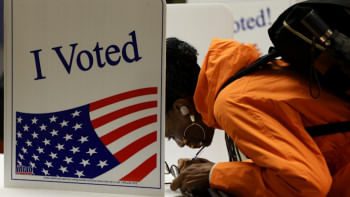EU recommends revising ICT's legal framework in line with int'l standards

The European Union has expressed concerns about the International Crimes Tribunal's legal framework, recommending aligning its structure with international human rights standards.
Paying respect to the victims of the July-August crackdown, the EU also underlined the importance of ensuring due process at all stages of proceedings to ensure justice.
The issues were discussed at the 11th meeting of the Sub-group on Good Governance and Human Rights of the EU-Bangladesh Joint Commission held on 31 October in Dhaka under the framework of the EU-Bangladesh Cooperation Agreement, according to a statement issued today.
The sub-group was co-chaired by Mohammad Mohiuddin, head of the Legislative and Parliamentary Affairs division at the Ministry of Law, Justice and Parliamentary Affairs; and Rensje Teerink, head of division for South Asia at the European External Action Service. Observers from the embassies of the EU Member States in Dhaka also attended the meeting.
The subgroup discussed a number of areas of reform, such as the justice sector, public administration, the security sector, and capacity building of the Legislative and Parliamentary Affairs Division.
The EU and Bangladesh agreed on the need to address the human rights concerns of women, children, and persons belonging to minorities and marginalised groups.
No one should live in fear of violence, harassment or discrimination, they said, "Law and order should be ensured for all, including the most vulnerable."
The EU and Bangladesh recognised that the political transition the country is currently undergoing offers an unprecedented opportunity to make progress on human rights and good governance in Bangladesh.
The EU welcomed the interim government's strong commitment to advance reforms and take the necessary steps towards a democratic, pluralistic and inclusive Bangladesh, which it hoped would be governed by the rule of law and human rights.
This commitment is notably reflected by Bangladesh's accession to the International Convention for the Protection of All Persons from Enforced Disappearance (ICPPED), and by the creation of a Commission of Inquiry on enforced disappearances, it said.
Announcements to repeal or swiftly amend some of the legislations that have been used to crush dissent and curtail fundamental freedoms, such as the Cyber Security Act, are further signals of this commitment, the EU team added.
They paid tribute to the courage and determination of the students and members of the general public who stood up for their rights and remembered those who lost their lives during the popular uprising in July/August.
At the meeting, Bangladesh explained the process for carrying out structural reforms in several key areas, including through the recently established reform commissions.
The EU welcomed the ongoing work of the commissions that the government has formed to carry out the reforms and underlined the importance of taking into account the realities and perspectives of the population in all its diversity, including women and minorities. It also emphasised the need for further process of consultation and decision-making based on the commissions' reports.
Paying respect to the victims and survivors of the violent crackdown on protestors in July/August, as well as noting prior human rights violations, the EU and Bangladesh agreed on the need to hold perpetrators of human rights violations accountable.
Following up on the EU's long-standing engagement with Bangladesh on labour rights, both sides agreed to make progress in this sector by making labour inspections more effective.
The EU recalled that the preferential access of Bangladeshi exports to the European market is premised on the respect of international human rights and labour standards.


 For all latest news, follow The Daily Star's Google News channel.
For all latest news, follow The Daily Star's Google News channel. 



Comments